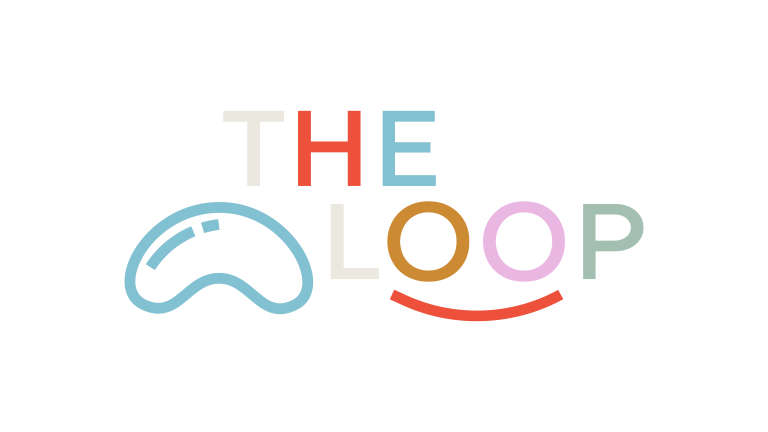
If you’re like most people, you may not be familiar with the term—executive functioning. The first time you hear it, you may envision busy C-Suites managing countless responsibilities, tasks, and due dates. If that's what you picture, you're not too far off. In fact, executive function skills are often referred to as the brain's CEO. While these skills are extremely important, most clinical therapists don’t even learn about executive function skills until we enter grad school.
The thing is, you’re probably very familiar with executive functioning skills, even if you’re not aware of what they’re called. That’s because these skills are crucial to our lives.
We use our executive functioning skills all day, everyday. They help us make decisions, set priorities, and even solve daily problems.
But what are they, really?
This article will take a deep dive into executive function skills, so you can learn how your brain uses these essential skills to support you. We’ll also examine what can be done if a person struggles with their executive functioning.
But, first thing’s first—what IS executive functioning, anyway?!
What is executive functioning? And what are executive function skills?
Our brains are divided into four primary segments, or lobes. Each of these lobes has its own set of crucial neurological functions and responsibilities. They all also work together—sharing the load of big, important skills like memory, language, motor skills, and reasoning.
One of these lobes is known as your frontal lobe. As you may be able to guess—it’s the one in the front of your head. The frontal lobe is the section of your brain starting from your forehead and extending back to where you’d place a headband.
While all the lobes of your brain are important and store crucial information—your frontal lobe is an extremely important section. It’s where your brain stores big parts of your personality. It’s also the primary seat of your executive function skills.
Your executive function skills are a collection of key mental capabilities. Used collectively, these are the core skills we utilize to plan, organize and achieve any plans or goals we set out for ourselves. They sound pretty important, right? They are!
Executive function skills have been sorted into many different categories and subcategories by neuroscientists and researchers.
The current models tend to separate them into three umbrella categories, with various related skills fitting under these.
According to, Understood.org the umbrella categories of executive functioning are—
Working memory
Thought flexibility (also known as cognitive flexibility)
Inhibitory control (think: inhibition)
Let’s take a closer look at each of these, before we jump into a comprehensive list of executive function skills.
Your working memory is your brain’s ability to hold information close at hand to help you accomplish something. It’s used to recall something during a test, to access and use knowledge that’s relevant to completing a certain activity, and to keep track of what you’re doing when you’re working on a task with multiple parts. It’s a key component of our short term memory. It’s kind of like a push notification for your brain—it makes sure you don’t miss anything while you’re in the middle of something.
Your cognitive flexibility is your brain’s ability to pivot and turn on a dime. Sometimes, you need to be able to think about a problem or issue you face in a different way, in order to solve it. You also need the ability to explain concepts to others, and to understand the relationships between objects and concepts. It's how your brain thinks on its feet, so to speak.
Have you ever encountered someone who lacked inhibition? Yeah, me too. We’ve all met folks who struggle with their inhibitory control. You use this skill to understand and follow the rules of appropriate behavior. It’s also what you lean on to walk away from that extra brownie, or to focus on what your boss is saying, rather than the bird outside the window. If you lack inhibitory control, it’s tough to get things accomplished, as you’re always at the whim of your impulses.
Now that you’ve gotten a sense of the three primary executive function categories, let’s do a roundup of executive functioning skills.
Your executive function skills include—
Self-awareness and self-control
Decision making and problem solving
Planning and prioritizing
Emotional regulation
Short term memory related to spatial awareness and sensory information
Short term memory related to speech and language
Time management
Organization
Initiation
I think you’ll agree—there’s some pretty important skills on that list!
Your executive function skills help you navigate pretty much everything you do. They govern how you show up in the world, and even how you relate to yourself.
So, it’s easy to see why it’s crucial to address issues with these core skills when they arise. Problems with the acquisition and mastery of executive function skills can seriously impact a child’s ability to succeed in school and in life in general.
That’s why, here at The Loop, we offer executive function skills coaching as one of our exclusive learning support services. We know how important these skills are to a child’s performance in school and their overall quality of life—that’s why it’s part of our mission to address and treat these issues when they show up.
Maybe you're concerned your child may be having issues with their executive function skills. Let’s examine how these tend to present in school-aged kids, so you be aware of what to look for in your child.
How do executive function issues show up in children?
Now that you’ve learned about what executive functions are, you may be wondering—how do you separate issues with executive functioning from things like ADHD in kids?
The answer is simple—ADHD IS a problem with executive functioning.
These issues look similar because they are—they’re closely linked. When you look at the list of executive functions, you’ll see how a disorder like ADHD impacts most of these skills.
In addition, children who struggle with their executive functions often have difficulties with—
Handling changes to their routines and schedules
Effectively organizing their thoughts
Transitioning from one task to another
Managing their emotions and behaviors
Forgetting things (like what they’ve heard or said)
Organizing, prioritizing, and initiating tasks
Time management
Keeping track of things
These issues can seriously affect how a child performs in school, and can even lead to feelings of low self esteem, diminished quality of life, and reduced potential.
Thankfully, there is support and assistance available for children who deal with these issues.
Let’s look at how executive function issues are treated, and who is involved in this process.
How are issues with executive functioning treated?
As is the case with many other issues (see our article about sensory processing from last week for a relevant example), executive functioning difficulties are not formally diagnosed. Instead, they’re assessed by looking closely at a child’s behaviors and needs, and by using tests designed to measure and understand their related strengths and weaknesses.
This testing will be part of a thorough evaluation of your child, which also includes gaining information from you, communicating with your child’s teacher, and fully examining your child’s cognition and learning abilities.
Our executive function coaches are highly trained and skilled at addressing and treating these issues in the students who experience them. We’ll help identify the unique challenges your child faces. We’ll train them in individualized strategies, designed to help them recognize and overcome these issues when they arise.
We work closely with your child’s teacher, ensuring our strategies and supports are carried over across school settings. We’ll also communicate regularly with you—sharing information and strategies to help you support your child at home, and to promote their self-advocacy and overall independence.
Time management
Working efficiently
Prioritizing information and assignments
Effectively planning during the school day
Organization
In addition, your EF coach will also coordinate with your child’s teacher to implement any necessary classroom changes to support your child. Let’s take a look at what this can involve.
What classroom accommodation can be made for students with executive function issues?
Many students with executive function issues benefit from classroom modifications to support their school performance and success. Your ED coach will collaborate with your child’s teacher to implement necessary accommodations. Our goal is to ensure your child has access to the same robust learning experience as their peers.
While the specific accommodations will be tailored for your child’s needs, some common modifications we use to support our students’ executive functioning skills include—
Ensuring assignments and instructions are delivered clearly, and in more than one form of media (i.e. verbally and in writing)
Breaking down tasks and assignments into smaller steps
Establishing a set daily routine and sticking to it
Assisting with organizational supports (like providing folders or a basket)
Giving clear, simple instructions in the classroom
Checking in regularly
Providing the outlines, keywords, or reviews of assignments
Modifications to how work is accepted (both in timelines and instructions for responding)
Providing and training in assistive devices (like talk to text software, colored pencils, highlighters, or an assignment notebook)
These are just some of the changes we can make in your child’s school to support their learning and performance in the classroom.
When your child is seen by a member of our Loop team, we never provide one-size-fits-all services. Instead, we customize every plan to fit each individual child and family we serve. We not only take into account your child’s needs, we consider their preferences—and work to make therapy an enjoyable as well as a beneficial experience for them.
Our exclusive partnership with Chicago private schools allows us to provide high quality therapy and learning support services right in your child’s school. We’re honored to support Chicago-area families like yours. It’s our mission to help your child achieve their goals and reach their fullest potential.
If you’d like more info about the services we provide or how we can be of assistance to your family—reach out! You can contact us via our website, catch up with us on your favorite social medical platform by following @TheLoopSLL, or email us with questions at info@theloopsll.com


